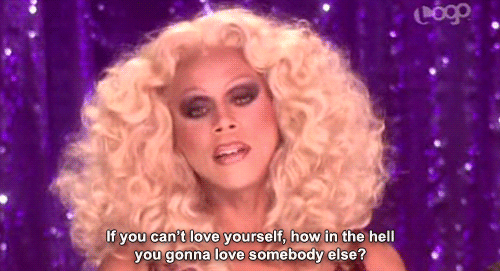A recent study has shown that the more people show their true selves at work, the happier and more productive they’ll be.
“To thine own self be true, and it must follow, as the night the day, thou cans’t not be false to any man”. — William Shakespeare, Hamlet
In what is claimed to be the first causal evidence showing that workplace happiness does in fact matter, the study was undertaken by researchers over at the Social Market Foundation and the University of Warwick’s Center for Competitive Advantage in the Global Economy in a bid to understand the happy-productive worker.
The research included four different experiments and over 700 participants. The experiments involved showing random individuals either a 10-minute comedy clip or providing them with snacks and drinks. This was then followed up by a discussion to decide whether the “happiness shocks” (referred to in the report) had a positive impact on the participants.
According to Fortune, other participants were asked to discuss recent events in their lives, such as family tragedies, so that researchers could determine whether the lower levels of happiness could be associated with low productivity.
The results showed that those that were treated to a funny video or treats had an average increase of around 12% in their productivity – even going as far as reaching 20% in some. The study also found that there was a link between unhappiness and low productivity in those that discussed less-happier experiences – that could have a lasting effect of up to around 2 years.
Pair this up with the American Psychological Association’s 2008 “Authentic Personality” report that determined whether “authenticity is related to well-being”. The results clearly show that there IS a direct line between being yourself with being happy and productive.
With these studies in mind, you might be wondering what are some of the things that you can do to stay happy – and therefore productive – at work. Here are some great tips.
Know your strengths, own your strengths
Once you know your own strengths in your profession, you can go ahead crafting them in an effort to own them. By knowing your capabilities, you will reduce the risk of self-doubt. Instead of thinking whether you’re able to do a designated task, you’ll be positively and assuredly able to know that you can do it.
According to Marcus Buckingham and LeanIn, there are four key signs to recognizing your strengths:
- Success – This is the power of feeling in control and effective when doing the task at hand.
- Instinct – This is the feeling of looking forward to doing the task because you’re aware and confident you can do it.
- Growth – Knowing that the activity will help you to be focused and remain inquisitive.
- Needs – Whether the task has knocked you out or not, you still feel fulfilled and have a sense of achievement.
Don’t always aim to please
By aiming to please, you’re instantly going against your natural instinct because you’re reaching out to be how someone else wants you to be. Whilst there are times when conforming for the greater good is more ideal in the situation, remember to make sure you’re not always aiming to please.
It’s okay for people to disagree with your opinion from time to time – it’s your opinion, not theirs. Having an opinion means you have a voice. Even if people decide not to listen, you will ultimately feel proud that you at least spoke your mind and shared your feelings. Don’t be brash about it. Be sure to respect other people’s opinions and even company culture, but don’t be afraid to share your thoughts.
The folks over at Game-Changer believe that true innovators don’t have a culture that aims to please the boss, and that employee freedom and responsibility go together:
“The main point is people need freedom, support and challenge to make innovation happen; not to think twice about expressing themselves freely because they fear getting punished. Put simply, if you are afraid to say what you really think in a meeting, you are not free. You are a corporate slave.”
Reflect on your values and who you are as a person
To know yourself, you need to find out and realize what it is you are and what you stand for. This is not something that comes easy to many people, and can take years for people to properly figure out. Think of it as a stepping stone. Take the time to jump from one stone to another, learning another value of yours one step at a time.
An easy way to start figuring your values out is to follow Colin Hile’s 5-step exercise on identifying what your core values are by applying contemplation, choice, and commitment.
If all else fails, just remember this, courtesy of RuPaul:
Ultimately, if you’re not being yourself then you’re not going to be your most productive self. By figuring out what you stand for and taking steps on improving your situation, you will not only find happiness at work and life, but also boost your productivity.
Featured photo credit: Rawpixel.com via shutterstock.com















































